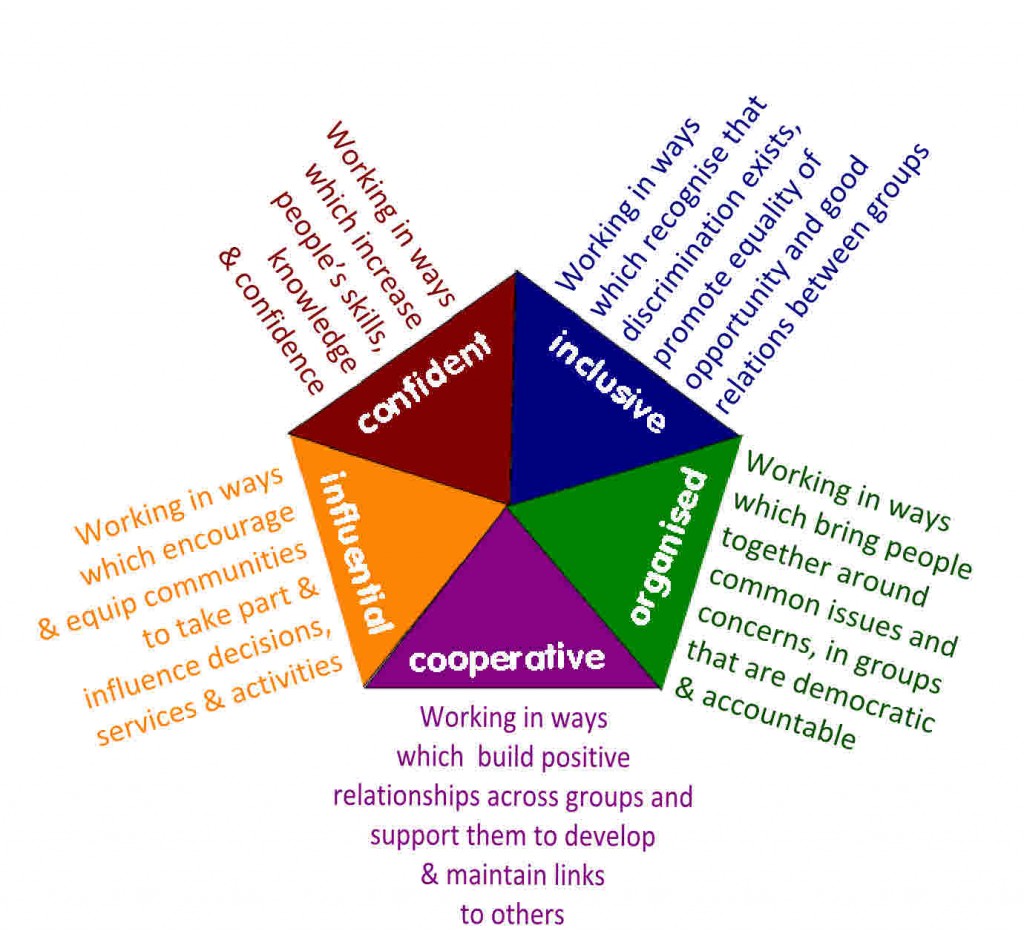Community Empowerment
Community empowerment is about working in ways which empower people – ways which mean that people feel ‘confident’, that they – and the groups they are involved in – are inclusive and organised, that networks are formed, are cooperative and support each other and – ultimately – they are influential. These are the 5 Community Empowerment Dimensions which inform all our work at changes, and which are drawn from the DiCE planning and evaluation framework.
These dimensions are a way of understanding and explaning what this community empowerment business is all about. They help us to actually do it! By thinking about community empowerment in terms of 5 distinct (but inter-related) dimensions, we can apply it to our practice, plan to work in these ways and assess what happens as a result.
Essentially, community empowerment is about putting the values of community development into action – in a systematic way. Remember these?
- Learning – recognising the skills, knowledge and expertise that people contribute and develop by taking action to tackle social, economic, political and environmental problems.
- Equality – challenging the attitudes of individuals, and the practices of institutions and society, which discriminate against and marginalise people.
- Participation – facilitating democratic involvement by people in the issues which affect their lives based on full citizenship, autonomy, and shared power, skills, knowledge and experience.
- Co-operation – working together to identify and implement action, based on mutual respect of diverse cultures and contributions.
- Social Justice – enabling people to claim their human rights, meet their needs and have greater control over the decision-making processes which affect their lives.
All too often values are just words, stuck on a poster in a room or on a sheet of paper on a shelf somewhere. Organisations notoriously struggle to put them into practice. Yet, by making the connection between these community development values and the five community empowerment dimensions you can do just that and actually walk the talk!
We find that it helps our understanding to recognise that empowered communities, whether geographic, of identity or of interest – and empowered agencies – are: confident, inclusive, organised, cooperative and influential.
And, the five dimensions offer a coherent interpretation of community empowerment, as being both:
Process which can be applied to any area of work and which focuses on how we work – taking an approach which is an empowering experience rather than a disempowering experience
Outcome for both communities and agencies; a change which is enduring, which is intended to improve the quality of life for communities and that results in people feel more empwowered

